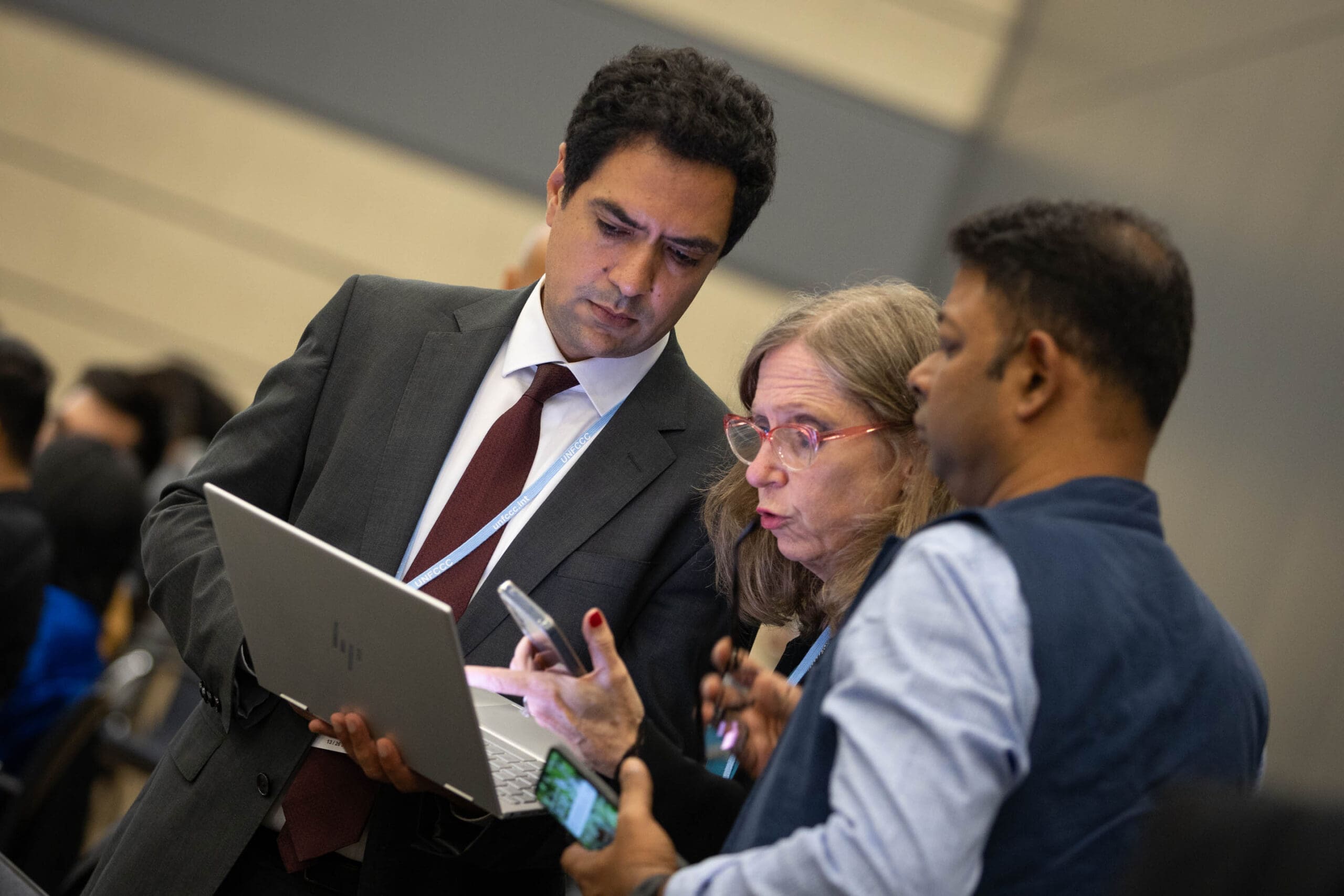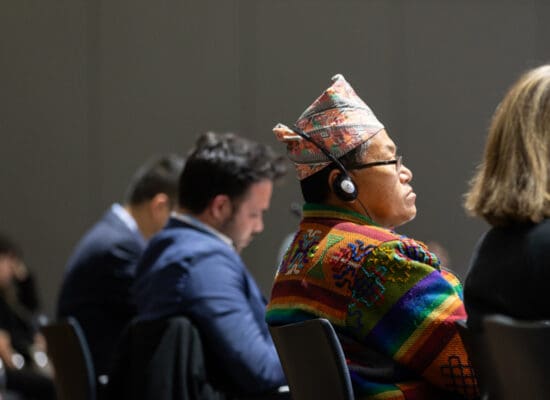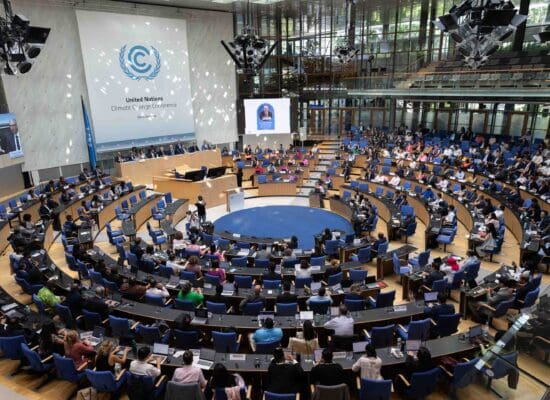Event Summary
Just Transition Work Programme in 2025: Unpacking the progress made in Bonn
For the first time since the inception of the Just Transition Work Programme (JTWP), negotiators at the Bonn climate talks were able to agree on a provisional text to advance the programme. We take a closer look at the progress made and highlight key issues to watch for at COP 30 in Belém.

At the Bonn Climate Conference in June 2025, negotiators made significant strides on the JTWP, marking the most substantial progress since the programme’s establishment at COP 27 and its formal launch at COP 28. For the first time, the parties were able to agree on a consolidated draft decision and an accompanying informal note—texts that will now be forwarded for formal consideration at COP 30 in Belém. This development represents a breakthrough after the stalled talks in Bonn and Baku in 2024, where disagreements and process mismanagement had left the work programme in limbo.
A Breakthrough After Years of Deadlock
The informal note adopted in Bonn signals increased consensus on the key pillars of the JTWP, including support for finance, capacity-building, and technology transfer, particularly aimed at enabling developing countries to design and implement their own just transition strategies. The note underscores the nationally determined nature of just transition pathways and encourages countries to integrate these into their nationally determined contributions (NDCs), national adaptation plans (NAPs), and long-term low-emission development strategies (LT-LEDS)—anchoring social and equity issues more firmly within the core instruments of the Paris Agreement.
It also acknowledges the multisectoral, people-centric, and bottom-up nature of just transitions, recognising a wide range of stakeholders including Indigenous Peoples, women, youth, people with disabilities, informal workers, and internally displaced people. This broader framing reflects the input of many Global South countries and civil society voices, and it balances the more traditional focus on labour market transitions in industrial contexts. It calls for the protection of human rights, gender equality, and nature, while also promoting universal access to clean energy and clean cooking. The text also highlights links to adaptation, resilience, biodiversity protection, and the rights of vulnerable groups.
Institutional Futures and the 2026 Deadline
A key issue discussed in Bonn was the future of the JTWP beyond its current mandate, which expires at COP 31 in 2026. The informal note includes three options:
- improving existing modalities
- establishing new institutional arrangements (such as a toolbox, global platform, technical assistance network, or guidance framework)
- deferring a decision to 2026
Many civil society organisations welcomed the inclusion of these forward-looking options, noting that a permanent mechanism could help operationalise just transition goals and provide practical assistance on the ground.
In parallel, countries debated how to track and report progress. Some called for the inclusion of just transition considerations in NDC reporting, while others preferred flexibility. The note reflects this debate without resolving it, but there is shared recognition of the need to link the JTWP to other UN Framework Convention on Climate Change processes, such as the global stocktake and the work of other relevant technical bodies established under the Paris Agreement, including those focused on adaptation, finance, technology, and response measures.
Persistent Fault Lines: Trade, energy, and gender
The Bonn negotiations were shaped by a preliminary tussle over the agenda, with several developing countries seeking a dedicated item on unilateral trade-restrictive measures, such as the EU’s Carbon Border Adjustment Mechanism. Although these countries were unsuccessful in securing a standalone item, parties eventually agreed to address these issues within relevant agenda items, including the JTWP. As a result, the informal note now includes three placeholder options related to this topic: (1) affirming the need for international cooperation; (2) recognising the impacts of trade measures; or (3) not including any text.
Other familiar tensions resurfaced as well. Several countries—most notably within the Like-Minded Developing Countries (LMDCs) group and the Arab Group—objected to language that framed moving away from fossil fuels as an opportunity, even when paired with the expansion of clean energy and access to clean cooking. These countries emphasised the principle of national circumstances and argued that linking fossil fuel phase-out with basic energy needs risked overlooking the development priorities of the Global South and undermining climate justice. On the final day, informal discussions helped to resolve this last sticking point. A new compromise—option 2 reworded to emphasise universal access to clean energy and cooking while removing a proposed reference to fossil fuels—was included. The LMDCs requested reinsertion of the “no text” option to preserve negotiating flexibility, and ultimately they agreed to forwarding the note.
In another flashpoint, Paraguay objected to gender-based language, illustrating ongoing debate over how explicitly gender equality and human rights should be integrated. These disagreements—alongside diverging views on trade—are likely to resurface in Belém.
Balancing Specificity and Flexibility
The negotiations reflected a familiar divide between those advocating for specific, operational outcomes—such as sectoral benchmarks and reporting mechanisms—and those prioritising national flexibility and differentiated responsibility. Developed countries largely favoured integration into NDCs and more detailed sectoral approaches, while developing countries generally underscored the need for tailored national pathways, international cooperation, and sufficient means of implementation.
Nevertheless, the text emerging from Bonn shows growing alignment on the need for a whole-of-economy approach and challenges linked to informal work, debt burdens, and institutional capacity gaps—especially for least developed countries and Small Island Developing States.
Looking Ahead to Belém
With only 18 months left before the programme’s 2026 review deadline, the progress made in Bonn provides the first real platform for further advancing the work programme. Parties will now need to decide how to institutionalise the JTWP, whether through new structures, enhanced modalities, or a decision to extend discussions. Observers have called for concrete next steps at COP 30, such as a Belém Action Mechanism that focuses on country-tailored implementation support, peer learning, and avoiding the need for expensive consultancy services.
The Bonn outcome gives the JTWP renewed momentum, but key decisions will need to be taken at COP 30 in Belém to ensure that the programme delivers meaningful outcomes. Parties will therefore need to agree in Belém not only on the programme’s long-term function but also on practical tools and governance structures that support its implementation on the ground. After two years of dialogue and deliberation, negotiators finally have a draft text in hand—but the path to a durable, equitable, and truly global just transition agenda is still far from complete.
What actually happens at the Bonn climate talks? Revisit our explainer video below.
Stay Informed and Engaged
Subscribe to the Just Energy Transition in Coal Regions Knowledge Hub Newsletter
Receive updates on just energy transition news, insights, knowledge, and events directly in your inbox.


